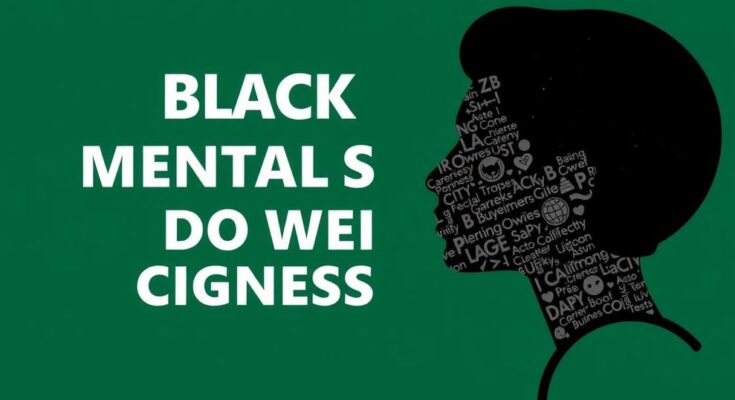The Black Mental Health and Wellness Conference returns to Champaign, focusing on mental health discussions in the Black community, offering insights on trauma coping strategies, and emphasizing the importance of understanding the unique challenges faced by youth today. Scheduled for October 26 at Parkland, the event will feature Anjanette Young as a keynote speaker, spotlighting her advocacy for racial justice and healing.
In a community long celebrated for its strength in overcoming adversity, seeking help for mental health struggles can still feel daunting. To address this, Donna Tanner-Harold is reviving the Black Mental Health and Wellness Conference for its second year, aiming to shine a light on the complexities of mental well-being. “Everybody’s talking about mental health, and nobody seems to really understand what it is,” Tanner-Harold observed, emphasizing the need for clearer conversation about mental health issues in the Black community. As a retired counselor from Parkland College, Tanner-Harold has engaged in discussions about mental health through various platforms, including the Champaign County Community Coalition. Her experience and community passion sparked the idea to host a free, daylong conference, designed to offer deeper insights and practical coping strategies. “I wanted to go a little bit more public with explaining those things and giving people a greater understanding,” she said. Scheduled for October 26, from 8 a.m. to 4 p.m. at Parkland, the conference remains free, although attendees must register online for logistical purposes. Tracy Parsons, a host of the event, noted the critical focus on issues affecting the Black community, using relevant statistics to frame their discussions. “We actually are in a crisis as a community,” Parsons stressed, pointing to the perilous consequences stemming from a lack of willingness to seek help. The conference will address gun violence, trauma, and grief, with heightened attention on youth and parenting challenges compared to last year. Tanner-Harold recognized that while parenting fundamentals remain constant, today’s challenges, particularly influenced by technology and societal issues such as school safety drills, require fresh approaches. “How do you address some of their concerns?” she posed, reflecting on the complexities of guiding children through their fears. Moving beyond traditional mental health treatment, the event will embrace a trauma-informed care approach, seeking to understand the collective wounds within the Black community rather than merely treating individual pathologies. “Not only has it kept people from opportunities, but it diminishes your sense of self-worth and self-esteem,” Tanner-Harold explained, aiming to shift perceptions and foster healing conversations. The conference will feature Anjanette Young, who courageously advocates for police reform after experiencing a traumatic wrongful raid in Chicago. Young’s compelling narrative and her subsequent healing journey illustrate resilience. “She is full of healing and hope,” Tanner-Harold expressed, emphasizing the transformative power of shared stories in shaping community discussions around mental health and justice.
The Black Mental Health and Wellness Conference seeks to foster a deeper understanding of mental health issues within the Black community, addressing the stigma that inhibits open discussions about struggles and help-seeking behavior. Organizers aim to enrich knowledge on coping strategies and solutions to the trauma many face, particularly due to systemic racism and societal crises. By bringing together expert speakers, the conference intends to create a supportive environment for healing and growth.
The Black Mental Health and Wellness Conference emerges as a beacon of hope and healing, explicitly targeting mental health issues that disproportionately affect the Black community. With a thoughtful agenda focused on education, trauma-informed care, and youth engagement, the conference offers practical solutions alongside powerful narratives. Organizers aim to break the silence surrounding mental health struggles and foster open discussions, paving the way for collective healing and empowerment.
Original Source: www.news-gazette.com



